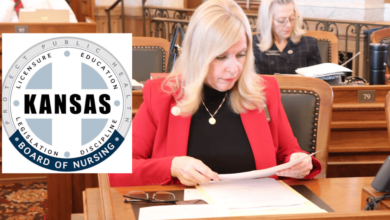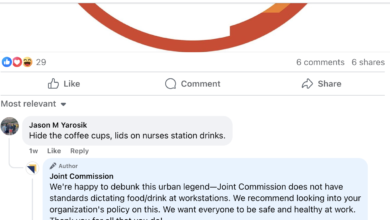Scottish auditor general calls for NHS workforce reforms

Significant reform of the public sector in Scotland – including the NHS and its workforce – is needed to protect services over the long term, a new report has found.
The auditor general for Scotland’s briefing into the Scottish Government’s workforce challenges, published this week, has laid bare some of the key issues facing the public sector workforce in Scotland, and has argued that reforms will help relieve budgetary pressures.
“We need to get the right number of nursing staff in the right place, at the right time, and in the right mix”
Colin Poolman
Nurse leaders have welcomed the calls but have urged for any reforms to be long term and sustainable, in the hope that they will address some of the registered nursing workforce shortages in the country.
The report highlighted that, since devolution in 1999, the number of people working in the public sector had “grown significantly”.
The Scottish Government has seen its public sector workforce grow from fewer than 150,000 full time equivalent (FTE) staff in 1999-00 to more than 245,000 by 2022-23 – an increase of 65%.
The NHS accounts for two thirds of this workforce and workforce costs.
However, Scottish Government projections suggest that it will not be able to continue to afford to pay for public sector services in their current form, the report warned.
As such, the auditor general has called for reform of these services to address any budget shortfalls in the coming years.
It comes as, in 2021-22, pay costs for the NHS, central government, police and fire services and further education were £13.4bn.
In addition, the pay deals secured by unions for 2022-23 and 2023-24, have exceeded the Scottish Government’s public sector pay policy.
Nurses were among those to receive an average 7.5% increase for 2022-23 and an average 6.5% increase for 2023-24.
In total, £1.7bn more than was initially planned was agreed in public sector pay deals for both financial years.
The report warned that these increases would be “locked into future budgets” and would make it harder for the Scottish Government to manage pay costs over time.
On workforce, the report noted that the Scottish Government would be planning for future growth that could be slower than it had been in recent years.
It warned that an approach to reform that only focussed on controlling workforce numbers and pay costs would “not address current and future capacity challenges”.
It comes as there are 64,310 FTE nurses and midwives working in the NHS in Scotland.
However, there remains 5,616 FTE unfilled registered nursing and midwifery posts.
The auditor general called for “better strategic workforce planning” as well as wider changes to how staff work within and across organisations.
It also noted that the scale of public sector workforce reform that will be needed to deliver sustainable public services would be “greater than that seen it recent years”.
As part of this, the report recommended that the Scottish Government works with public bodies, like the NHS, to bring together an analysis of workforce costs in Scotland.
In addition, the report urged the Scottish Government to work with these public bodies to collate plans for reform, including understanding the difference it will make to workforce costs, how staff deliver the services and staff wellbeing.
Stephen Boyle, the auditor general for Scotland, said: “Significant reform of the public sector – including its workforce – is needed to protect services over the long term.
“That means better workforce planning and wider changes to how staff work within and across organisations.
“An approach to reform purely focused on controlling workforce numbers will not address workforce pressures and is unlikely to balance the public finances.”
Some of the recommendations in the report reflect calls that have been made this year by health leaders in Scotland.
Responding to the report, the Royal College of Nursing director for Scotland, Colin Poolman, said that, for some time the RCN had been calling for “much improved workforce planning based on population need”.
He said: “We need to get the right number of nursing staff in the right place, at the right time, and in the right mix.
“At the same time, the nursing workforce deserves fair pay.

Colin Poolman
“Their pay has been seriously eroded over years by inflation and the continuing cost of living crisis.”
Mr Poolman cited the growing nurse vacancies in the country and warned that too many experienced nursing staff were leaving the profession due to being “worn down by the years of understaffing and underinvestment”.
He added: “Long-term, sustainable reform is needed for our health and care services.
“The Scottish Government must find a way to deliver on its commitments to reform the Agenda for Change pay system and to ensure the Nursing and Midwifery Taskforce delivers a robust and funded action plan to support retention, increase the numbers studying nursing and improve the workplace culture and wellbeing of health and care staff.”
Responding to the report, a Scottish Government spokesperson said: “The Scottish Government recognises that workforce costs – driven by a sustained period of high inflation – are now contributing to unsustainable budget pressures, as set out in the medium term financial strategy published in May 2023.”
The spokesperson said public bodies were “best placed” to assess what action must be taken to ensure fiscal sustainability within their budgetary allocations, and that they were responsible for ensuring they “have the right sized workforce to deliver what is needed”.
They added: “Delivering high quality, sustainable public services is one of our key missions.
“That’s why we are working with public sector bodies to reform services, ensuring workforces are sustainable, efficient and meet the needs of the people of Scotland.”







